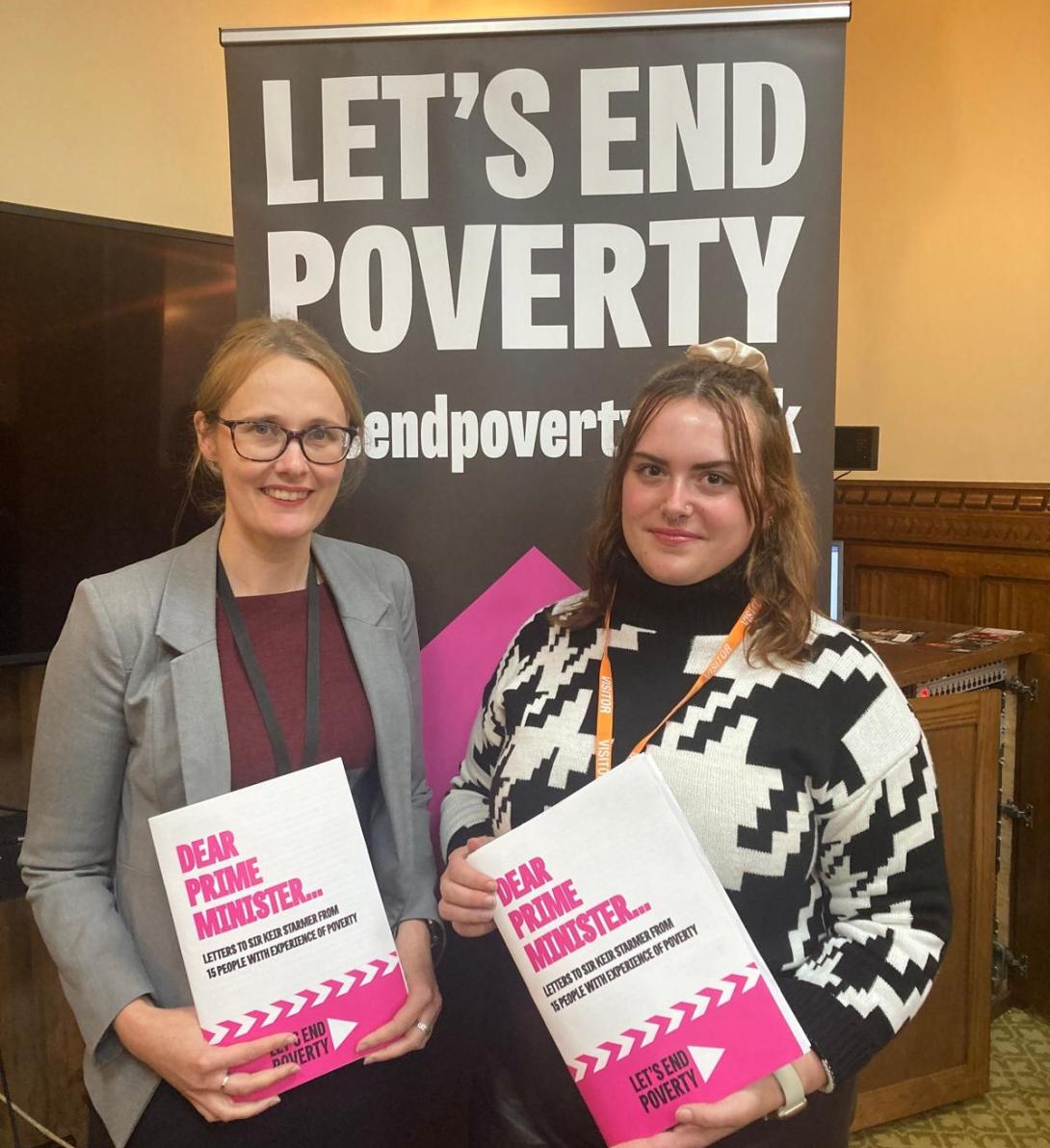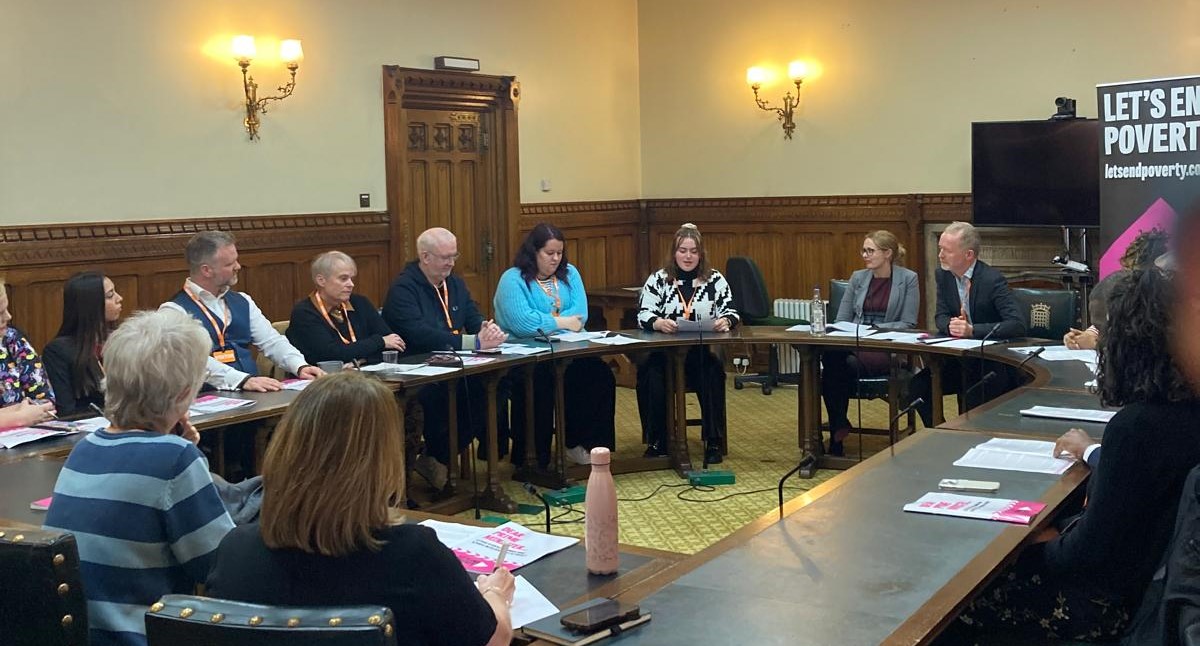15 October 2024
Child poverty: Is the new Labour government ready to listen?

Poverty is about people, not just numbers, and behind these statistics are stories from citizens that deserve to be heard, writes Food Foundation Citizen Engagement Manager Lucy Heyderman
Across the last two weeks, we have seen Scotland, England and Wales, and London host Challenge Poverty Weeks. It might seem strange that a country with the sixth largest economy and the fourth wealthiest city in the world, are hosting events like this.
Yet, The Food Foundation's research has shown that 7.2 million adults and 2.7 million children experienced food insecurity in June 2024 (that is 14% of all UK households, and 18% of UK households with children).
Meanwhile, one in four Londoners live in poverty, and the city has the highest rate of child poverty in the UK: a shocking 33% of all children in London live in poverty.
Prime Minister praises letters from our Food Ambassador in parliament
Food insecurity is a huge part of poverty. It means lack of access to a nutritious diet, and it has a detrimental impact on health. Furthermore, our research shows that food insecurity is a symptom of poverty that cuts across society in inequitable ways:
- Non-white ethnic groups are at higher risk of food insecurity than white ethnic groups.
- 32% of households with an adult limited a lot by disability experience food insecurity, compared to 10% of those without.
- Those living with mental health conditions are over twice as likely to be living in food insecure households.
But poverty is about people and people are not just numbers. Behind these statistics are stories that deserve to be heard, which is why The Food Foundation has a dedicated programme of Food Ambassadors who contribute to our work, using their voices, words and experiences to campaign for change.
Food Ambassador, Kat, speaks about the development of eating disorders in her family; because her children grew up fearing food scarcity, they continue to struggle not to binge when food is available in our latest report. She also revealed the pain that brings her as a parent.
Food Ambassador, Precise, has shared her experience of only recently becoming used to eating breakfast as a regular meal, due to being so used to skipping breakfast so her child could eat.
The young Food Ambassadors talk about rumbling tummies in classes, of lacking energy to learn, of tiny portions, stressed parents and feeling left behind.

The Let's End Poverty event in Parliament
Poverty piles on pressure after pressure after pressure; it is a form of oppression, and it must be challenged. So, it’s no surprise that so many charities, communities and individuals are clamouring for change.
So, what can be done to challenge poverty?
Since the new government has been in power, those listening will have heard a considerable amount of noise about removing the two-child benefit cap.
According to Child Poverty Action Group (CPAG), this is the biggest driver of rising child poverty in the UK today. The impact of two-child limit means 23% of families with three children and 26% of families with four or more children experienced food insecurity in June.
There has been an outpouring of anger over the government’s decision not to remove the two-child benefit cap. Support for axing the cap gained support by the SNP, Green Paid Cymru and independents. Meanwhile, Labour MPs have reeled, rebelled and even resigned over this matter.
Outside of the confines of party politics, many in charity sector are holding their breath for the recommendations of the Child Poverty Taskforce – set up by Keir Starmer’s government to develop a strategy to challenge child poverty.
We have been told that no decisions can be made, or solutions offered, until the taskforce has completed its review. We are told the findings will be published in Spring 2025.
Meanwhile, the cost-of-living crisis continues to strip households of their ability to afford nutritious food: the UK has the highest core inflation rate among the G7 countries, as well as the highest food inflation.
Nutritious food comes at a premium, which means people’s physical and mental health also comes at a premium – a premium many cannot afford.
While we wait, while evidence is gathered and decisions made in the comfort of heated offices with complementary or discounted food, millions struggle on in food insecure realities.
Challenging poverty means listening to citizens:
For England & Wales Challenge Poverty Week, two Food Foundation ambassadors, Saf Stedall and Glory Omoaka, have headed to the Let’s End Poverty’s parliamentary event, having written letters to the Prime Minister on why ending poverty is critical.
For London Challenge Poverty Week, a young Food Ambassador, Mirzan, has spoken on the Mayor’s Fund for London’s podcast – telling his story and calling on the government for change.
Citizens must input to the decision making that will impact their lives. We have submitted a letter to the Child Poverty Taskforce, stating that our young Food Ambassadors are ready to be heard – is the government ready to listen?




